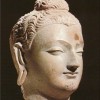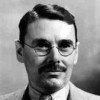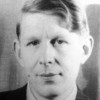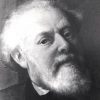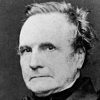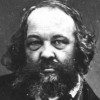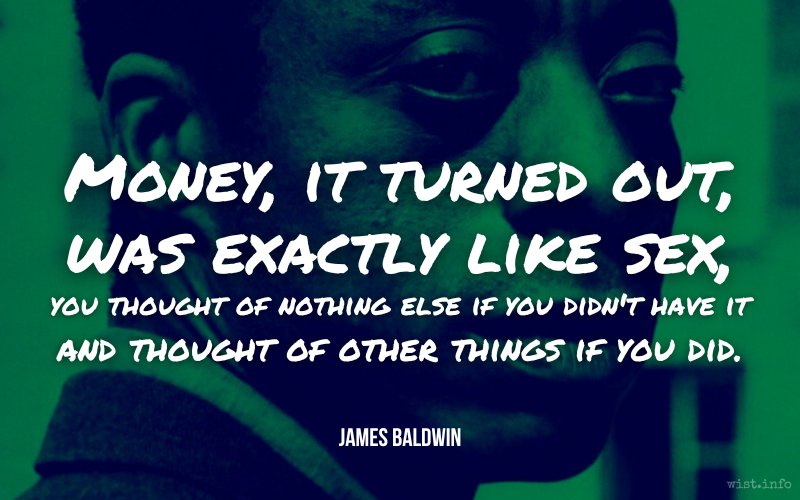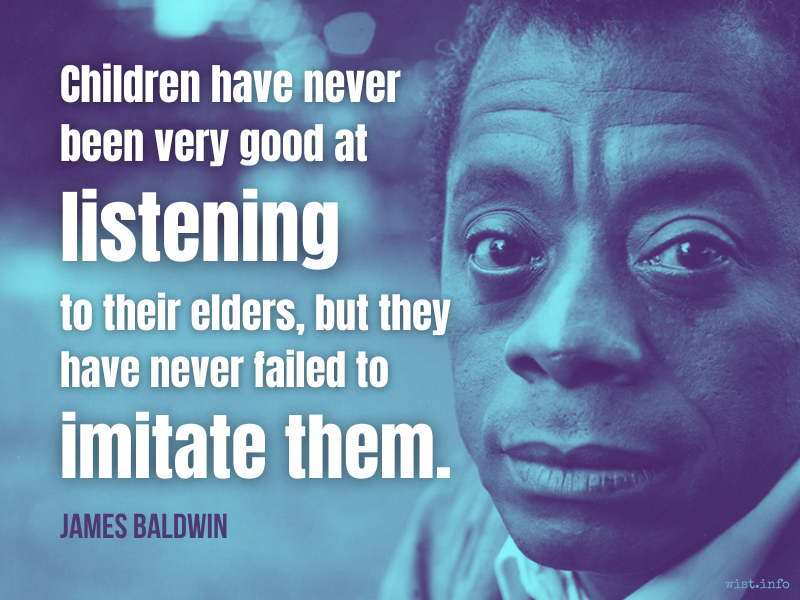It is the mark of an educated mind to be able to entertain a thought without accepting it.
Aristotle (384-322 BC) Greek philosopher
(Spurious)
First attributed to Aristotle in Lowell L. Bennion, Religion and the Pursuit of Truth (1959). Unfound as such.
Sometimes thought (though I feel it's a bit of a stretch) a misinterpretation of Nicomachean Ethics 1.3.4 (1094b): "For it is the mark of an educated person to search for the same kind of clarity in each topic to the extent that the nature of the matter accepts it."
More discussion of this quotation:
Now and then a blinde man may hit a crow.
Robert Armin (c.1568-1615) English comic actor, playwright
A Nest of Ninnies (1608)
Full text.
If I were in the President’s place I would not get a chance to resign. I would be lying in a pool of my own blood hearing Mrs. Armey standing over me saying, “How do I reload this damn thing?”
Dick Armey (b. 1940) American politician, economist
Press Conference (15 Sep. 1998)
When asked during the Monica Lewinsky scandal if President Clinton should resign. More information.
I believe every human has a finite number of heartbeats. I don’t intend to waste any of mine running around doing exercises.
There is no such whetstone, to sharpen a good wit and encourage a will to learning, as is praise.
Roger Ascham (1515-1568) English author and scholar
The Schoolmaster, Book I (1570)
Like other occult techniques of divination, the statistical method has a private jargon deliberately contrived to obscure its methods from non-practitioners.
Colonel G. O. Ashley (d. 1997) American military pilot, instructor, journalist
(Attributed)
I don’t subscribe to the thesis, “Let the buyer beware.” I prefer the disregarded one that goes, “Let the seller be honest.”‘
It is change, continuing change, inevitable change, that is the dominant factor in society today. No sensible decision can be made any longer without taking into account not only the world as it is, but the world as it will be.
We have only a slim chance of getting through the problems that face us now, but if too many Miniver Cheevys sit back to drink and long for a non-existent past, that slim chance will decrease to zero.
The most exciting phrase to hear in science, the one that heralds new discoveries, is not “Eureka!” but “That’s funny…”
Isaac Asimov (1920-1992) Russian-American author, polymath, biochemist
(Attributed)
Unsourced. More information here.
From my close observation of writers (almost all my friends are writers) they fall into two groups: 1) those who bleed copiously and visibly at any bad review, and 2) those who bleed copiously and secretly at any bad review.
Isaac Asimov (1920-1992) Russian-American author, polymath, biochemist
Gold: The Final Science Fiction Collection, Part III, ch 10 “Book Reviews” (2003)
Full text.
When, however, the lay public rallies round an idea that is denounced by distinguished but elderly scientists and supports that idea with great fervor and emotion — the distinguished but elderly scientists are then, after all, probably right.
Isaac Asimov (1920-1992) Russian-American author, polymath, biochemist
Fantasy & Science Fiction (in answer to Clarke’s First Law) (1977)
See Clarke.
Even as a youngster, though, I could not bring myself to believe that if knowledge presented danger, the solution was ignorance. To me, it always seemed that the solution had to be wisdom. You did not refuse to look at danger, rather you learned how to handle it safely.
The young specialist in English Lit, … lectured me severely on the fact that in every century people have thought they understood the Universe at last, and in every century they were proved to be wrong. It follows that the one thing we can say about our modern “knowledge” is that it is wrong.
… My answer to him was, “… when people thought the Earth was flat, they were wrong. When people thought the Earth was spherical they were wrong. But if you think that thinking the Earth is spherical is just as wrong as thinking the Earth is flat, then your view is wronger than both of them put together.”
Any technological advance can be dangerous. Fire was dangerous from the start, and so (even more so) was speech — and both are still dangerous to this day — but human beings would not be human without them.
It is not by the sword or the spear, by soldiers or by armed force that truth is to be promoted, but by counsel and gentle persuasion.
Athanasius (293-373) Bishop of Alexandria, theologian, saint
Divinia Institutia, 54
Migne, Patrologia Latina, 6: 1061
In every age “the good old days” were a myth. No one ever thought they were good at the time. For every age has consisted of crises that seemed intolerable to the people who lived through them.
Brooks Atkinson (1894-1984) American drama critic and journalist
Once Around the Sun, “February 8” (1951)
(Source)
People everywhere enjoy believing things that they know are not true. It spares them the ordeal of thinking for themselves and taking the responsibility for what they know.
Brooks Atkinson (1894-1984) American drama critic and journalist
Once Around the Sun, “February 2” (1951)
(Source)
Silence is a text easy to misread.
A. A. Attanasio (b. 1951) American writer [Alfred Angelo Attanasio, a.k.a Adam Lee]
“The Eagle and the Sword”
We would rather be ruined than changed,
We would rather die in our dread
Than climb the cross of the moment
And let our illusions die.W. H. Auden (1907-1973) Anglo-American poet [Wystan Hugh Auden]
The Age of Anxiety, Part 6 [Malin] (1948)
(Source)
Among those whom I like or admire, I can find no common denominator, but among those whom I love, I can: all of them make me laugh.
W. H. Auden (1907-1973) Anglo-American poet [Wystan Hugh Auden]
The Dyer’s Hand and Other Essays, Part 7 “The Shield of Perseus,” “Notes on the Comic” (1962)
(Source)
Evil is unspectacular and always human
And shares our bed and eats at our own table.
But I wretched, most wretched, in the very commencement of my early youth, had begged chastity of Thee, and said, “Give me chastity and continency, only not yet.”
[At ego adulescens miser ualde, miser in exordio ipsius adulescentiae, etiam petieram a te castitatem et dixeram, ‘Da mihi castitatem et continentiam, sed noli modo.’]
Augustine of Hippo (354-430) Christian church father, philosopher, saint [b. Aurelius Augustinus]
Confessions, Book 8, ch. 7 / ¶ 17 (8.7.17) (c. AD 398) [tr. Pusey (1838)]
(Source)
Augustine describing his youth when he wanted God to remove his sinful sexual desires -- but not before he could satisfy them.
(Source (Latin)). Alternate translations:But I, miserable young man, supremely miserable even in the very outset of my youth, had entreated chastity of Thee, and said, “Grant me chastity and continency, but not yet.”
[tr. Pilkington (1876)]But I, miserable youth, most miserable, in the very beginning of my youth had sought from Thee chastity, and said, “Give me chastity and continency, but not now.”
[tr. Hutchings (1890)]Yea, wretched, O wretched youth that I had been, on the very threshold of my youth, I had even begged of Thee the gift of chastity; but I had said “Give me chastity and self- control, but not just yet.”
[tr. Bigg (1897), 8.7.2]But I in my great worthlessness -- for it was greater thus early -- had begged You for chastity, saying: “Grant me chastity and continence, but not yet.”
[tr. Sheed (1943)]But, wretched youth that I was -- supremely wretched even in the very outset of my youth -- I had entreated chastity of thee and had prayed, “Grant me chastity and continence, but not yet.”
[tr. Outler (1955)]But I, a most wretched youth, most wretched from the very start of my youth, had even sought chastity from you, and had said, "Give me chastity and continence, but not yet!"
[tr. Ryan (1960)]As a youth I had been woefully at fault, particularly in early adolescence. I had prayed to you for chastity and said, "Give me chastity and continence, but not yet."
[tr. Pine-Coffin (1961)]But I, wretched young man that I was -- even more wretched at the beginning of my youth -- had begged you for chastity and had said, "Make me chaste and continent, but not yet."
[tr. Warner (1963)]But I, most wretched youth, and more wretched at my youth’s beginning, had even sought chastity at your hands and said: 'Give me chastity and self-control but not yet.'
[tr. Blaiklock (1983)]
For God judged it better to bring good out of evil than not to permit any evil to exist.
[Melius enim judicavit de malis bene facere quam mala nulla esse permittere.]Augustine of Hippo (354-430) Christian church father, philosopher, saint [b. Aurelius Augustinus]
Enchiridion on Faith, Hope and Love, ch. 8 / § 27 (AD 420) [tr. Outler (1955)]
(Source)
(Source (Latin)). Alternate translations:For He judged it better to bring good out of evil, than not to permit any evil to exist.
[tr. Shaw (1887)]God judged it better to bring good out of evil than to suffer no evil to exist.
[tr. Clifford (1903)]
Faith is to believe what you do not see; the reward of this faith is to see what you believe.
[Est autem fides credere quod nondum vides; cuius fidei merces est videre quod credis.]
To many, total abstinence is easier than perfect moderation.
[Multi quidem facilius se abstinent ut non utantur, quam temperent ut bene utantur.]
Augustine of Hippo (354-430) Christian church father, philosopher, saint [b. Aurelius Augustinus]
On the Good of Marriage [De Bono Conjugali], § 25 (AD 401)
(Source)
(Source (Latin)). Alternate translations:Many indeed with more ease practice abstinence, so as not to use, than practice temperance, so as to use well.
[tr. Cornish (<1885)]Many indeed find it easier to abstain from making use of them than to control their use and use them properly.
[tr. Kearney (1999)]Complete abstinence is easier than perfect moderation.
[E.g.]
God has promised forgiveness to your repentance, but He has not promised tomorrow to your procrastination.
Augustine of Hippo (354-430) Christian church father, philosopher, saint [b. Aurelius Augustinus]
(Paraphrase)
This appears to be a heavy paraphrase from Sermon 40.5-6 [tr. Edmund Hill]:"I'm only asking," he says, "to be allowed a little more time." Why? "Because God has promised me pardon." But no one has promised you that you are going to be alive tomorrow. Or else, just as you have read in the prophet, the gospel, the apostle, that when you have turned back to him God will blot out all your iniquities, read out to me where a tomorrow is promised you, and then live in an evil way tomorrow.
For more discussion, see:
What, then, is time? I know well enough what it is, provided that nobody asks me; but if I am asked what it is and try to explain, I am baffled.
[Quid est ergo tempus? Si nemo ex me quaerat, scio; si quaerenti explicare velim, nescio.]
Augustine of Hippo (354-430) Christian church father, philosopher, saint [b. Aurelius Augustinus]
Confessions, Book 11, ch. 14 / ¶ 17 (11.14.17) (c. AD 398) [tr. Pine-Coffin (1961)]
(Source)
(Source (Latin)). Alternate translations:What then is time? If no one asks me, I know: if I wish to explain it to one that asketh, I know not.
[tr. Pusey (1838)]What then is time? If no one asks me, I know; if I wish to explain it to one that asketh, I know not.
[ed. Shedd (1860)]What, then, is time? If no one ask of me, I know; if I wish to explain to him who asks, I know not.
[tr. Pilkington (1876)]What then is time? If no one asks me, I know; if I want to explain it to a questioner, I do not know.
[tr. Sheed (1943)]What, then, is time? If no one asks me, I know what it is. If I wish to explain it to him who asks me, I do not know.
[tr. Outler (1955)]What, then, is time? If no one asks me, I know; if I want to explain it to someone who does ask me, I do not know.
[tr. Ryan (1960)]What then is time? I know what it is if no one asks me what it is; but if I want to explain it to someone who has asked me, I find that I do not know.
[tr. Warner (1963)]
This clearly shows that we learn better in a free spirit of curiosity than under fear and compulsion.
[Hinc satis elucet maiorem habere vim ad discenda ista liberam curiositatem quam meticulosam necessitatem.]
Augustine of Hippo (354-430) Christian church father, philosopher, saint [b. Aurelius Augustinus]
Confessions, Book 1, ch. 14 / ¶ 23 (1.14.23) (c. AD 398) [tr. Pine-Coffin (1961)]
(Source)
(Source (Latin)). Alternate translations:No doubt, then, that a free curiosity has more force in our learning these things, than a frightful enforcement.
[tr. Pusey (1838)]Hereby it appears that free curiosity has more force in our learning of tongues than frightful enforcement.
[ed. Shedd (1860)]From this it is sufficiently clear that a free curiosity hath more influence in our learning these things than a necessity full of fear.
[tr. Pilkington (1876)]Whence it is sufficiently clear, that the free desire of knowledge has more power to make us learn these things than the urgency of fear.
[tr. Hutchings (1890)]It is plain then that the freedom of curiosity is a far better instructor in language than the compulsion of fear.
[tr. Bigg (1897)]All this goes to prove that free curiosity is of more value in learning than harsh discipline.
[tr. Sheed (1943)]From this it is sufficiently clear that a free curiosity is more effective in learning than a discipline based on fear.
[tr. Outler (1955)]Hence it is plain enough that for learning a language free interest has greater power than frightening constraint.
[tr. Ryan (1960)]It is clear enough from this that free curiosity is a more powerful aid to the learning of languages than a forced discipline.
[tr. Warner (1963)]By this it is clear that a free curiosity is a greater force in learning than a fear-ridden compulsion.
[tr. Blaiklock (1983)]
Men go forth to marvel at the heights of mountains and the huge waves of the sea, the broad flow of the rivers, the vastness of the ocean, the orbits of the stars, and yet they neglect to marvel at themselves.
[Et eunt homines mirari alta montium et ingentes fluctus maris et latissimos lapsus fluminum et oceani ambitum et gyros siderum, et relinquunt se ipsos.]
Augustine of Hippo (354-430) Christian church father, philosopher, saint [b. Aurelius Augustinus]
Confessions, Book 10, ch. 8 / ¶ 15 (10.8.15) (c. AD 398) [tr. Outler (1955)]
(Source)
(Source (Latin)). Alternate translations:And men go abroad to admire the heights of mountains, the mighty billows of the sea, the broad tides of rivers, the compass of the ocean, and the circuits of the stars, and pass themselves by.
[tr. Pusey (1838)]And men go forth to wonder at the heights of mountains, the huge waves of the sea, the broad flow of the rivers, the extent of the ocean, and the courses of the stars, and omit to wonder at themselves.
[tr. Pilkington (1876)]And men travel to admire the heights of mountains, and the vast waves of the sea, and the broad streams of rivers, and the circuit of the ocean, and the orbits of stars, and pass over themselves.
[tr. Hutchings (1890)]Here are men going afar to marvel at the heights of mountains, the mighty waves of the sea, the long courses of great rivers, the vastness of the ocean, the movements of the stars, yet leaving themselves unnoticed.
[tr. Sheed (1943)]Men go forth to marvel at the mountain heights, at huge waves in the sea, at the broad expanse of flowing rivers, at the wide reaches of the ocean, and at the circuits of the stars, but themselves they pass by.
[tr. Ryan (1960)]Yet men go out and gaze in astonishment at high mountains, the huge waves of the sea, the broad reaches of rivers, the ocean that encircles the world, or the stars in their courses. But they pay no attention to themselves.
[tr. Pine-Coffin (1961)]And men go abroad to wonder at the heights of mountains, the huge waves of the sea, the broad streams of rivers, the vastness of the ocean, the turnings of the stars -- and they do not notice themselves.
[tr. Warner (1963)]Men go to wonder at the heights of mountains, and the huge billows of the sea, the broad sweeps of the rivers, the curve of ocean and the circuits of the stars, and yet pass by themselves.
[tr. Blaiklock (1983)]
I was asking myself these questions, weeping all the while with the most bitter sorrow in my heart, when all at once I heard the sing-song voice of a child in a nearby house. Whether it was the voice of a boy or a girl I cannot say, but again and again it repeated the refrain “Take it and read, take it and read.”
[Dicebam haec et flebam amarissima contritione cordis mei. Et ecce audio vocem de vicina domo cum cantu dicentis et crebro repetentis, quasi pueri an puellae, nescio: “tolle lege, tolle lege.”]
Augustine of Hippo (354-430) Christian church father, philosopher, saint [b. Aurelius Augustinus]
Confessions, Book 8, ch. 12 / ¶ 29 (8.12.29) (c. AD 398) [tr. Pine-Coffin (1961)]
(Source)
Augustine writes of being unable to break himself away from his life of carnal sin, until, at this moment, he gets what he deems an inspiration from God to open the Bible at random and, reading Romans 13:13-14, makes his full conversion to Christianity.
(Source (Latin)). Alternate translations:So was I speaking and weeping in the most bitter contrition of my heart, when, lo! I heard from a neighbouring house a voice, as of boy or girl, I know not, chanting, and oft repeating, "Take up and read; Take up and read."
[tr. Pusey (1838) and ed. Shedd (1860)]I was saying these things and weeping in the most bitter contrition of my heart, when, lo, I heard the voice as of a boy or girl, I know not which, coming from a neighbouring house, chanting, and oft repeating, “Take up and read; take up and read.
[tr. Pilkington (1876)]I spoke thus , and wept in the bitterest sorrow of my heart. And lo, I heard a voice as of a boy or girl from a neighbouring house, I know not which, chanting, and frequently repeating, "Take, read; take, read."
[tr. Hutchings (1890)]Thus I spoke, weeping in bitter contrition of heart, when, lo, I heard a voice from the neighbouring house. It seemed as if some boy or girl, I knew not which, was repeating in a kind of chant the words, "Take and read, take and read."
[tr. Bigg (1897)]Such things I said, weeping in the most bitter sorrow of my heart. And suddenly I heard a voice from some nearby house, a boy’s voice or a girl’s voice, I do not know: but it was a sort of sing-song, repeated again and again, “Take and read, take and read.”
[tr. Sheed (1943)]I was saying these things and weeping in the most bitter contrition of my heart, when suddenly I heard the voice of a boy or a girl -- I know not which -- coming from the neighboring house, chanting over and over again, “Pick it up, read it; pick it up, read it.”
[tr. Outler (1955)]Such words I spoke, and with most bitter contrition I wept within my heart. And lo, I heard from a nearby house, a voice like that of a boy or a girl, I know not which, chanting and repeating over and over, “Take up and read. Take up and read.”
[tr. Ryan (1960)]So I spoke, weeping in the bitter contrition of my heart. Suddenly a voice reaches my ears from a nearby house. It is the voice of a boy or a girl (I don’t know which) and in a kind of singsong the words are constantly repeated: “Take it and read it. Take it and read it.”
[tr. Warner (1963)]Such were my words and I wept in the bitter contrition of my heart. And, see, I heard a voice from a neighbouring house chanting repeatedly, whether a boy’s or a girl’s voice I do not know: "Pick it up and read it, pick it up and read it."
[tr. Blaiklock (1983)]
For how can anything done by the will of God be contrary to nature, when the will of so great a creator constitutes the nature of each created thing? A portent therefore happens not contrary to nature, but contrary to what is known of nature.
[Quo modo est enim contra naturam, quod Dei fit uoluntate, cum uoluntas tanti utique conditoris conditae rei cuiusque natura sit? Portentum ergo fit non contra naturam, sed contra quam est nota natura.]
Augustine of Hippo (354-430) Christian church father, philosopher, saint [b. Aurelius Augustinus]
City of God [De Civitate Dei], Book 21, ch. 8 (21.8) (AD 412-416) [tr. Green (Loeb) (1972)]
(Source)
Commonly: "Miracles are not contrary to nature, but only contrary to what we know about nature."
(Source (Latin)). Alternate translations:For how is that contrary to nature which happens by the will of God, since the will of so mighty a Creator is certainly the nature of each created thing? A portent, therefore, happens not contrary to nature, but contrary to what we know as nature.
[tr. Dods (1871)]Nothing that happens by the will of God can be ‘contrary to nature.’ The ‘nature’ of any particular created thing is precisely what the supreme Creator of the thing willed it to be. Hence, a portent is merely contrary to nature as known, not to nature as it is.
[tr. Walsh/Honan (1954)]For how can an event be contrary to nature when it happens by the will of God, since the will of the great Creator assuredly is the nature of every created thing? A portent, therefore, does not occur contrary to nature, but contrary to what is known of nature.
[tr. Bettenson (1972)]
When it comes time to die, be not like those whose hearts are filled with the fear of death, so when their time comes they weep and pray for a little more time to live their lives over again in a different way. Sing your death song, and die like a hero going home.
Chief Aupumut (fl. 18th C.) Mohican leader (also "Aupaumut").
(Attributed) (1725)
Sometimes attributed to Tecumseh (1768-1813).
One half of the world cannot understand the pleasures of the other.
I have been a selfish being all my life, in practice, though not in principle.
Where so many hours have been spent in convincing myself that I am right, is there not some reason to fear I may be wrong?
The danger from computers is not that they will eventually get as smart as men, but we will meanwhile agree to meet them halfway.
Bernard Avishai (b. 1949) Canadian-American writer, management consultant, political economist
Article on George Orwell’s “Newspeak” (1983)
Referenced on the author's site.
On two occasions I have been asked, — “Pray, Mr. Babbage, if you put into the machine wrong figures, will the right answers come out?” In one case a member of the Upper, and in the other a member of the Lower, House put this question. I am not able rightly to apprehend the kind of confusion of ideas that could provoke such a question.
Charles Babbage (1791-1871) English mathematician, computer pioneer, philosopher
Passages from the Life of a Philosopher, ch. 5 “Difference Engine No. 1” (1864)
(Source)
Here’s a test to find whether your mission on earth is finished: If you’re alive, it isn’t.
Richard Bach (b. 1936) American writer
Illusions: The Adventures of a Reluctant Messiah, ch. 15, epigraph (1977)
(Source)
Don’t be dismayed at good-byes.
A farewell is necessary before you can meet again.
And meeting again, after moments or lifetimes,
is certain for those who are friends.Richard Bach (b. 1936) American writer
Illusions: The Adventures of a Reluctant Messiah, ch. 18, epigraph (1977)
(Source)
A synonym is a word you use when you can’t spell the word you first thought of.
Burt Bacharach (b. 1929) American songwriter
(Attributed)
Nothing doth more hurt in a state than that cunning men pass for wise.
Francis Bacon (1561-1626) English philosopher, scientist, author, statesman
“Of Cunning,” Essays, No. 22 (1625)
(Source)
Now, the empire of man over things is founded on the arts and sciences alone, for nature is only to be commanded by obeying her.
[Hominis autem imperium in res, in solis artibus et scientiis ponitur. Naturae enim non imperatur, nisi parendo.]
Francis Bacon (1561-1626) English philosopher, scientist, author, statesman
Instauratio Magna [The Great Instauration], Part 2 “Novum Organum [The New Organon],” Book 1, Aphorism # 129 (1620) [tr. Wood (1831)]
(Source (Latin)). Alternate translations:Now the empire of man over things depends wholly on the arts and sciences. For we cannot command nature except by obeying her.
[tr. Spedding (1858)]Now, the empire of man over things is founded on the Arts and Sciences alone, for Nature is only governed by obeying her.
[tr. Johnson (1859)]Now the empire of man over things likes solely in the arts and sciences. For one does not have empire over nature except by obeying her.
[tr. Silverthorne (2000)]Now -- this being the point I wanted to make·—man’s control over things depends wholly on the arts and sciences, for we can’t command nature except by obeying her.
[tr. Bennett (2017)]
Good fame is like fire. When you have kindled it, you may easily preserve it; but if once you extinguish it, you will not easily kindle it again; at least, not make it burn as bright as it did.
The root of all superstition is that men observe when a thing hits, but not when it misses.
Francis Bacon (1561-1626) English philosopher, scientist, author, statesman
Sylva Sylvarum, Century 10 (1627)
Alt trans.: "It is true that that may hold in these things, which is the general root of superstition; namely, that men observe when things hit, and not when they miss; and commit to memory the one, and forget and pass over the other."
A wise man will make more opportunities than he finds.
Francis Bacon (1561-1626) English philosopher, scientist, author, statesman
“Of Ceremonies and Respects,” Essays, No. 52 (1625)
(Source)
Reading maketh a full man; conference a ready man; and writing an exact man.
Francis Bacon (1561-1626) English philosopher, scientist, author, statesman
“Of Studies,” Essays, No. 50 (1625)
(Source)
Man prefers to believe what he wants to be true. He rejects what is difficult because he is too impatient to make the investigation; he rejects sensible ideas, because they limit his hopes; he rejects the deeper truths of nature because of superstition; he rejects the light of experience, because he is arrogant and fastidious, believing that the mind should not be seen to be spending its time on mean, unstable things; and he rejects anything unorthodox because of common opinion. In short, emotion marks and stains the understanding in countless ways which are sometimes impossible to perceive.
[Quod enim mavult homo verum esse, id potius credit. Rejicit itaque difficilia, ob inquirendi impatientiam; sobria, quia coarctant spem; altiora naturae, propter superstitionem; lumen experientiae, propter arrogantiam et fastum, ne videatur mens versari in vilibus et fluxis; paradoxa, propter opinionem vulgi; denique innumeris modis, iisque interdum imperceptibilibus, affectus intellectum imbuit et inficit.]
Francis Bacon (1561-1626) English philosopher, scientist, author, statesman
Instauratio Magna [The Great Instauration], Part 2 “Novum Organum [The New Organon],” Book 1, Aphorism # 49 (1620) [tr. Silverthorne (2000)]
(Source)
See Demosthenes.
(Source (Latin)). Alternate translations:For man always believes more readily that which he prefers. He, therefore, rejects difficulties for want of patience in investigation; sobriety, because it limits his hope; the depths of nature, from superstition; the light of experiment, from arrogance and pride, lest his mind should appear to be occupied with common and varying objects; paradoxes, from a fear of the opinion of the vulgar; in short, his feelings imbue and corrupt his understanding in innumerable and sometimes imperceptible ways.
[tr. Wood (1831)]For what a man had rather were true he more readily believes. Therefore he rejects difficult things from impatience of research; sober things, because they narrow hope; the deeper things of nature, from superstition; the light of experience, from arrogance and pride, lest his mind should seem to be occupied with things mean and transitory; things not commonly believed, out of deference to the opinion of the vulgar. Numberless in short are the ways, and sometimes imperceptible, in which the affections colour and infect the understanding.
[tr. Spedding (1858)]For man more readily believes what he wishes to be true. And so it rejects difficult things, from impatience of inquiry; -- sober things, because they narrow hope; -- the deeper thigns of Nature, from superstition; -- the light of experience, from arrogance and disdain, lest the mind should seem to be occupied with worthless and changing matters; -- paradoxes, from a fear of the opinion of the vulgar: -- in short, the affections enter and corrupt the intellect in innumerable ways, and these sometimes imperceptible.
[tr. Johnson (1859)]For a man is more likely to believe something if he would like it to be true. Therefore he rejectsIn short, there are countless ways in which, sometimes imperceptibly, a person’s likings colour and infect his intellect.
- difficult things because he hasn’t the patience to research them,
- sober and prudent things because they narrow hope,
- the deeper things of nature, from superstition,
- the light that experiments can cast, from arrogance and pride (not wanting people to think his mind was occupied with trivial things),
- surprising truths, out of deference to the opinion of the vulgar.
[tr. Bennett (2017)]
Certainly, in taking revenge, a man is but even with his enemy; but in passing it over, he is superior; for it is a prince’s part to pardon.
Francis Bacon (1561-1626) English philosopher, scientist, author, statesman
“Of Revenge,” Essays, No. 4 (1625)
(Source)
He that will not apply new remedies must expect new evils; for time is the greatest innovator.
Francis Bacon (1561-1626) English philosopher, scientist, author, statesman
“Of Innovations,” Essays, No. 24 (1625)
(Source)
Alonso of Aragon was wont to say in commendation of age, that age appears to be best in four things — old wood best to burn, old wine to drink, old friends to trust, and old authors to read.
Francis Bacon (1561-1626) English philosopher, scientist, author, statesman
Apothegms, # 97 (1624)See Alfonso X.
A man that studieth revenge keeps his own wounds green, which otherwise would heal and do well.
Francis Bacon (1561-1626) English philosopher, scientist, author, statesman
“Of Revenge,” Essays, No. 4 (1625)
(Source)
They are ill discoverers that think there is no land, when they can see nothing but sea.
Francis Bacon (1561-1626) English philosopher, scientist, author, statesman
De Augmentis Scientiarum [Advancement of Learning], Book 3, ch. 4 (1605)
(Source)
Alt trans: "[They] are indolent discoverers who seeing nothing beyond but sea and sky, absolutely deny there can be any land beyond them."
Another source notes it as Book 2, ch. 7.
For there is no comparison between that which we may lose by not trying and by not succeeding; since by not trying we throw away the chance of an immense good; by not succeeding we only incur the loss of a little human labour. But as it is, it appears to me from what has been said, and also from what has been left unsaid, that there is hope enough and to spare, not only to make a bold man try, but also to make a sober-minded and wise man believe.
[Non enim res pari periculo non tentatur, et no succedit; cum in illo ingentis boni, in hoc exiguae humanae operae, jactura vertatur. Verum ex dictis, atque etiam ex non dictis, visum est nobis spei abunde subesse, non tantum homini strenuo ad experiendum, sed etiam prudenti et sobrio ad credendum.]
Francis Bacon (1561-1626) English philosopher, scientist, author, statesman
Instauratio Magna, Part 2 “Novum Organum” [The New Organon],” Book 1, Aphorism # 114 (1620) [tr. Spedding (1858)]
(Source)
(Source (Latin)). Alternate translations:For the risk attending want of success is not to be compared with that of neglecting the attempt; the former is attended with the loss of a little human labour, the latter with that of an immense benefit. For these and other reasons, it appears to us that there is abundant ground to hope, and to induce not only those who are sanguine to make experiment, but even those who are cautious and sober to give their assent.
[tr. Wood (1831)]For it is not a case where there is an equal risk in not trying and not succeeding; since in the former instance we risk a huge advantage; in the latter a little human labour is thrown away. But from what has been said, and also from what has not been said, it seems to us that there is abundant ground of hope, not only to justify a stout-hearted man in trying, but even a prodent and sober man in believing.
[tr. Johnson (1859)]For the danger of not trying and the danger of not succeeding are not equal, since the former risks the loss of great good, the latter of a little human effort. But from what we have said and from other things which we have not said, it has seemed to us that we have abundance of hope, whether we are men who press forward to meet new experiences, or whether we are careful and slow to believe.
[tr. Silverthorne (2000) "The Great Renewal"]The loss that may come from not trying is much greater than what may come from trying and not succeeding: by not trying we throw away the chance of an immense good; by not succeeding we only incur the loss of a little human labour. But from what I have said (and from some things that I haven’t said) it seems to me that there is more than enough hope not only to get a vigorous man to try but also to make a sober-minded and wise man believe that he will succeed.
[tr. Bennett (2017)]
If a man will begin with certainties, he shall end in doubts; but if he will be content to begin in doubts, he shall end in certainties.
Francis Bacon (1561-1626) English philosopher, scientist, author, statesman
De Augmentis Scientiarum [Advancement of Learning], Book 1, ch. 5, sec. 8 (1605)
Alt trans. (Willey Book ed., (1944)): "If we begin with certainties, we shall end in doubts; but if we begin with doubts, and are patient with them, we shall end in certainties."
Seek not proud riches, but such as thou mayest get justly, use soberly, distribute cheerfully, and leave contentedly.
Francis Bacon (1561-1626) English philosopher, scientist, author, statesman
“Of Riches,” Essays, No. 34 (1625)
(Source)
Also attributed to Benjamin Franklin.
There are four chief obstacles in grasping truth … namely, submission to faulty and unworthy authority, influence of custom, popular prejudice, and the concealment of our own ignorance accompanied by an ostentatious display of our knowledge.
Roger Bacon (c.1220-1292) English philosopher and scientist
Opus Majus, Vol 1, “The Causes of Error” (c. 1270 (pub. 1733))
Alt trans: "There are in fact four very different stumbling blocks in the way of grasping the truth, which hinder every man however learned, and scarcely allow anyone to win a clear title to wisdom, namely, the example of weak and unworthy authority, longstanding custom, the feeling of the ignorant crowd, and the hiding of our own ignorance while making a display of our apparent knowledge."
Why do birds sing in the morning? It’s the triumphant shout: “We got through another night!”
Enid Bagnold (1889-1981) English writer
(Attributed)
Unsourced in this form. In her 1969 autobiography she writes: "I hear it in the pillow; it intoxicates me. Why do they do it? I have never been taught about birds. Is it the triumph-shout - 'We have got through another night!' It may be."
Man’s power of choice enables him to think like an angel or devil, a king or a slave. Whatever he chooses, his mind will create and manifest.
Frederick Bailes (1889-1970) New Zealand-American author, religious leader, lecturer
(Attributed)
Days are scrolls: write on them only what you want remembered.
Joseph Bahya ibn Pakuda (fl. early 11th Century) Spanish Jewish jurist, rabbi, writer [also Bachya, Bach Ya, Bchya; Paquda, Bakuda]
(Attributed)
Everybody plays the fool.
No exception to the rule.
It may be factual, may be cruel,
But everybody plays the fool.James Ralph (J. R.) Bailey (1932-1980) American R&B singer and songwriter
“Everybody Plays the Fool” (1972) [with Rudy Clark, Ken Williams]
Who never doubted never half believed
Where doubt there truth is — ’tis her shadowPhilip James Bailey (1816-1902) English poet, lawyer
Festus, Sc. “A Country Town – Market-place – Noon” [Lucifer] (1839)
(Source)
Let each man think himself an act of God,
His mind a thought, his life a breath of God;
And let each try, by great thoughts and good deeds,
To shew the most of Heaven he hath in him.
We live in deeds, not years:
In thoughts, not breaths;
In feelings, not in figures on a dial.
We should count time by heart-throbs.
He most lives
Who thinks most, feels the noblest, acts the best.Philip James Bailey (1816-1902) English poet, lawyer
Festus, Sc. “A Country Town – Market-place – Noon” [Festus] (1839)
(Source)
Often misattributed to Aristotle.
One of the many burdens of the person professing Christianity has always been the odium likely to be heaped upon him by fellow Christians quick to smell out, denounce and punish fraud, hypocrisy and general unworthiness among those who assert the faith. In ruder days, disputes about what constituted a fully qualified Christian often led to sordid quarrels in which the disputants tortured, burned and hanged each other in the conviction that torture, burning and hanging were Christian things to do .
Freedom, morality, and the human dignity of the individual consists precisely in this; that he does good not because he is forced to do so, but because he freely conceives it, wants it, and loves it.
The liberty of man consists solely in this: that he obeys natural laws because he has himself recognized them as such, and not because they have been externally imposed upon him by any extrinsic will whatever, divine or human, collective or individual.
Money, it turned out, was exactly like sex, you thought of nothing else if you didn’t have it and thought of other things if you did.
Children have never been very good at listening to their elders, but they have never failed to imitate them.
Most of us are about as eager to be changed as we were to be born, and go through our changes in a similar state of shock.
James Baldwin (1924-1987) American novelist, playwright, activist
“Every Good-Bye Ain’t Gone,” New York Times (19 Dec 1977)
(Source)
Reprinted in The Price of the Ticket (1985).











